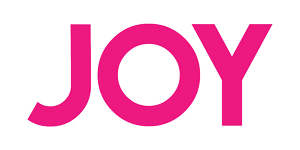Previvor Profile: Emily Burwell
by Jennifer Kornegay

When Emily Burwell was in college, her mother was diagnosed with breast cancer. She beat it. But it was found during a routine mammogram. Prior to her mother’s illness, Emily’s family had no known history of breast cancer, so it wasn’t something the women in her family were particularly concerned about.
After her mother’s cancer, Emily’s obstetrician suggested she be tested for the “breast cancer gene,” more accurately a group of genes only recently identified that predispose the women who have any of them to a higher risk for certain cancers, including breast cancer.
She followed her doctor’s advice, and Emily’s test for these genes came back positive. She has the PLAB2 gene, which puts her at significantly higher risk for breast, ovarian and pancreatic cancers. Her mom decided to get tested too; she was also positive. The results sent Emily and her mom to meet with a genetic counselor at UAB where they learned more about what the genes mean for their health and what proactive steps they should take. For Emily, it meant getting breast screenings every six months.
“It got to be a problem for me,” she says. “When I’d get scanned, they kept finding suspicious spots. They’d always turn out to be fine, but I’d worry while I waited to find out.” She was getting worn down by the repeated stress when a friend told her about her prophylactic mastectomy. “She shared what she had done and said she was surprised I’d not yet considered it,” Emily says. “I still wasn’t ready for that, but my next mammogram showed a suspicious spot again.”
That pushed Emily to get more information and to learn about “previvors,” women who’ve chosen to remove the risk of breast cancer by having mastectomies before any cancer is ever detected. “I talked to a bunch of different doctors about it,” she says, “and weighed the options. I thought a lot about my kids; they need me as a mom. I just wanted to get ahead of the threat.”
She decided she was ready to take the big step and in January 2017, she had her double mastectomy surgery. There were complications that led to an extended hospital stay and pushed her breast reconstruction and implant surgery back for months. And yet, she’s still glad she did it. “I know I did the right thing for me,” she says. When the pathology report from the breast tissue taken during the mastectomy came back, she was even surer. “It showed precancerous cells,” she says. “So that really made me even more confident about my decision,” Emily says. “Now, that worry that kept at me before is gone.”
Because Emily’s gene bumps up her risk for two other cancers as well, she still stays on top of her heath and undergoes continual monitoring. And while she’s clear she’s happy with her choice, she admits it wasn’t easy. “It was a really rough road with the surgeries,” she says. “But it was completely worth it.”
Today, she’s helping to make it a bit easier for others by giving back some of what was shared with her. “I get phone calls from women who want to know more about this, and I so I tell them all I know and what I went through, and I hope I am helping others by doing that.”
She knows it helped her. “I talked to so many other women who did this when before I made my choice, and that was so helpful,” she says. “These women were willing to really share the ins and outs.” And they often had more details than the doctors. “There was just so much practical information and tips on things like what you’ll want and need after the surgery,” she says.
Hearing all the first-hand stories played a major role in Emily’s eventual decision; she stresses they were invaluable in overcoming lingering doubts. “I was wondering, ‘I’m young, and I’m healthy. Is this a mistake?’ But the other women and their perspectives are really what helped me pull the trigger.”
The gene Emily has is one of the most recently discovered, and medical researchers still have a lot to learn about it. Emily is glad to assist them. “I’m kind a science project for the team at UAB,” she says. And she’s equally glad to aid other women in her shoes. “There seem to be more and more women faced with this choice, and if I can help anyone else dealing with, I want to.”
PODCAST: How I Became A Breast Cancer Pre-vivor
Tina Hodge has been dealing with breast cancer for almost 30 years–just not as a cancer survivor. Tina has provided compassionate leadership to clinics in the central Alabama area (and continues to do so) and has helped guide countless women and men through their breast cancer journeys. When she was diagnosed with a genetic predisposition for cancer, Tina made the decision to undergo a series of surgeries to reduce her risk of developing the disease. She shares with us what led to that decision and how her late husband Boyd (along with many others) helped her make the decision to become a “pre-vivor” and supported her every step of the way. It’s a journey full of family, fun and, believe it or not, fishing!

